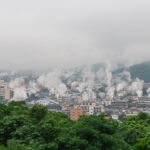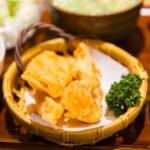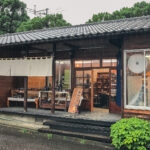This post may contain affiliate links. Please read our disclosure policy.
Beppu’s bamboo weaving tradition is one filled with artistry, patience, and 400 years of cultural heritage.
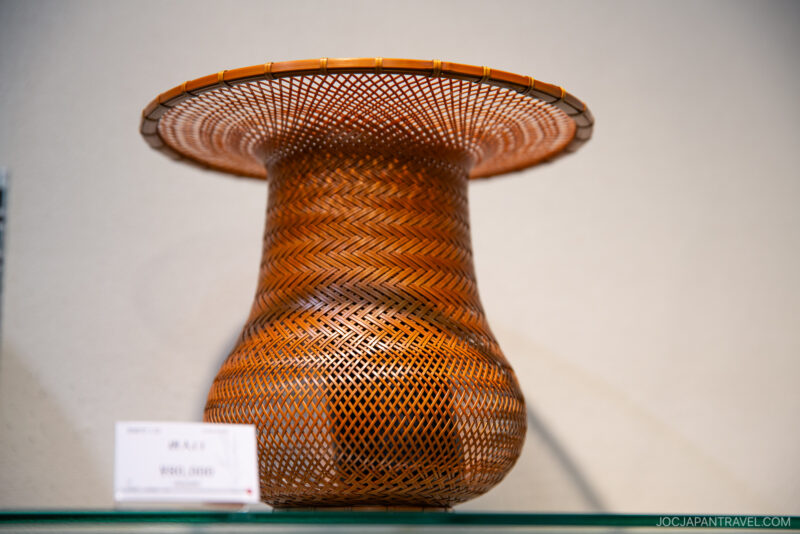
A Timeless Craft Woven Into Beppu’s Identity
When most people think of Beppu, hot springs are usually the first thing that comes to mind. But during our trip to this onsen town in Oita Prefecture, we discovered Beppu’s world-renowned bamboo weaving tradition.
We had no idea how deep the roots ran until we stepped into the Beppu City Traditional Bamboo Crafts Center. What started as a quick visit became one of our favorite experiences in Beppu.
Bamboo Weaving in Beppu: 400 Years of Craftsmanship
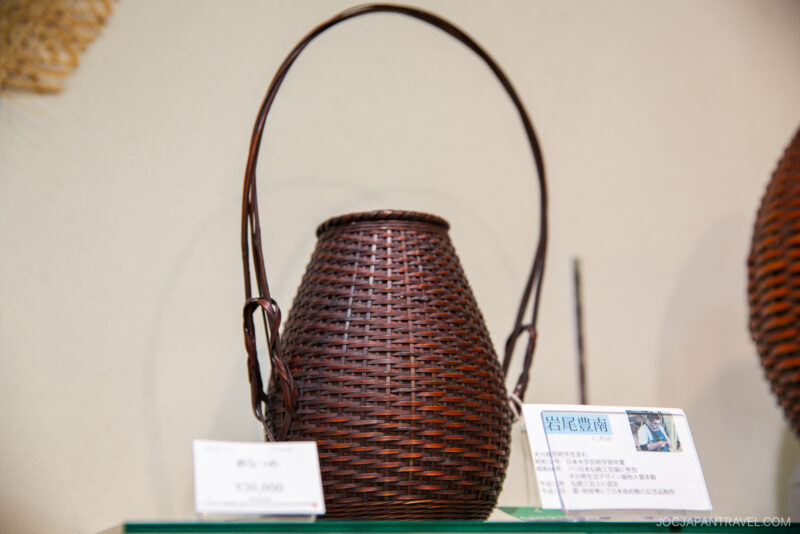
Beppu has been known for its bamboo crafts for centuries. The local climate and rich soil produce strong, flexible bamboo—perfect for weaving. In the Edo period, artisans made tools for daily life, like baskets, strainers, and fishing traps.
But everything changed after World War II. Plastic products flooded the market, and traditional crafts faced extinction. Instead of fading away, Beppu’s bamboo artists adapted. They began creating luxury goods—fine baskets, handbags, and decorative pieces that caught the attention of collectors and galleries.
In 1979, this legacy was officially recognized when Beppu bamboo craft was named a Traditional Japanese Craft by the government.
What It’s Like Visiting the Bamboo Crafts Center
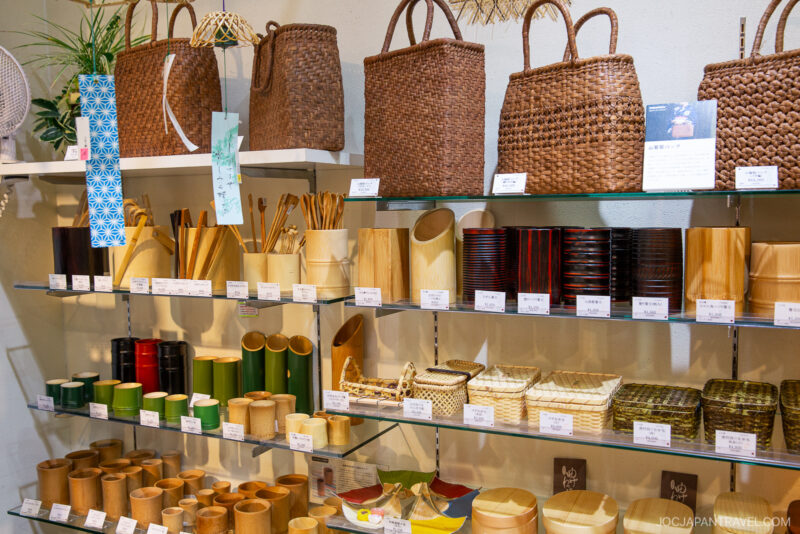
Located in a quiet neighborhood, the Bamboo Crafts Center looks modest from the outside, but the exhibits inside are extraordinary. We walked through displays of both everyday tools and intricate art pieces. Some baskets were so delicate they looked like lace.
What really impressed us was the educational side of the museum. We learned how raw bamboo is cut, dried, shaved, dyed, and split into fine strips before it’s even ready for weaving. There were videos, samples we could touch, and helpful signage in English.
The gift shop also had a small but beautiful selection of handmade bamboo goods. It’s a great place to pick up a special souvenir that supports local artisans.
How to Get to Beppu City Traditional Bamboo Crafts Center
Bus
- From Beppu Station’s East Exit, take Bus No. 22 and get off at the Takezaiku Densankaikan Mae bus stop. The center is just a one-minute walk from this stop.
- Total travel time: 10–15 minutes.
Taxi
- A taxi from Beppu Station takes about 10 minutes and costs around ¥1,400–¥1,700.
Pro Tip: Visit earlier in the day to enjoy a quieter experience and join the last hands-on workshop session before closing.
Should You Visit Beppu City Traditional Bamboo Crafts Center?
If you enjoy traditional craft and appreciate the skill, patience, and training behind handmade art, then absolutely. The Bamboo Crafts Center offers a calm, hands-on window into one of Japan’s oldest living traditions. It’s a meaningful stop for families, design lovers, and anyone curious about how things are made.
More to Explore Nearby
After visiting the Beppu City Traditional Bamboo Crafts Center, you can continue exploring Oita Prefecture with these scenic and cultural spots nearby.
- Yunotsubo Kaido – A charming shopping street in Yufuin lined with local sweets, quirky souvenirs, and scenic views of Mount Yufu.
- Kinrin Lake – This small but atmospheric lake in Yufuin is especially magical in the early morning when mist rises from its surface.
- Touki Pottery Experience – Try shaping your own piece of Yufuin pottery at this hands-on workshop just a short stroll from the town center.
- Musouen Hotel – Even if you’re not staying overnight, the open-air onsen at this hillside ryokan offers panoramic views of Yufuin Valley.

